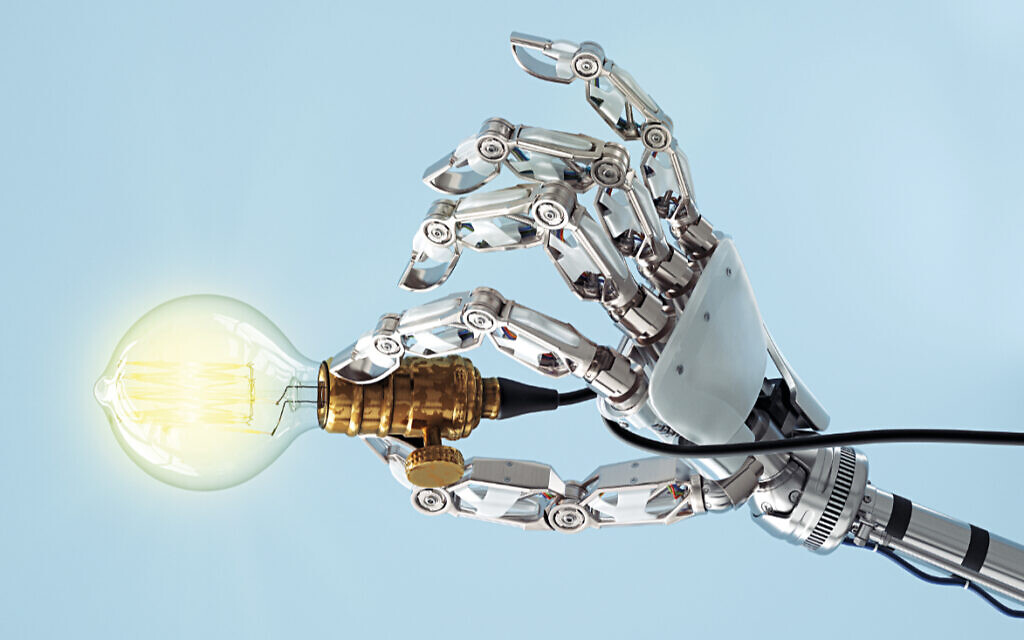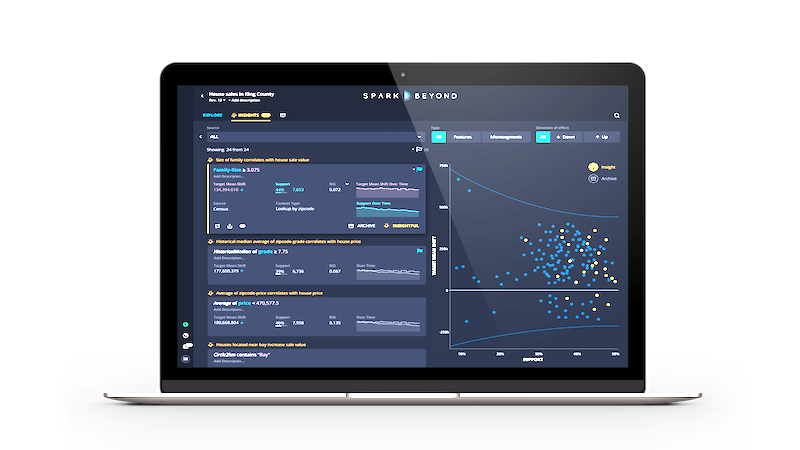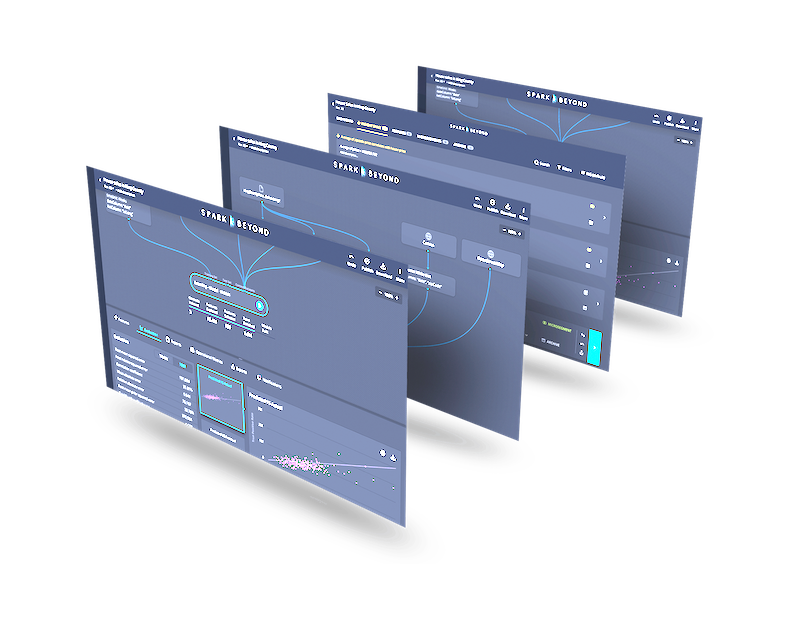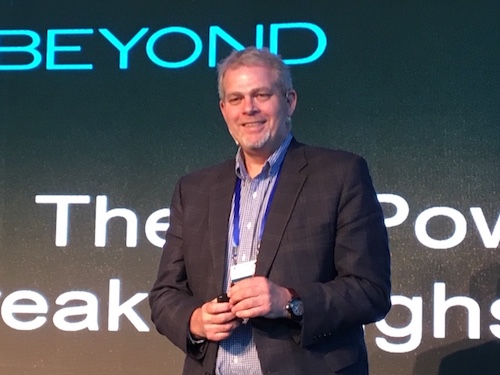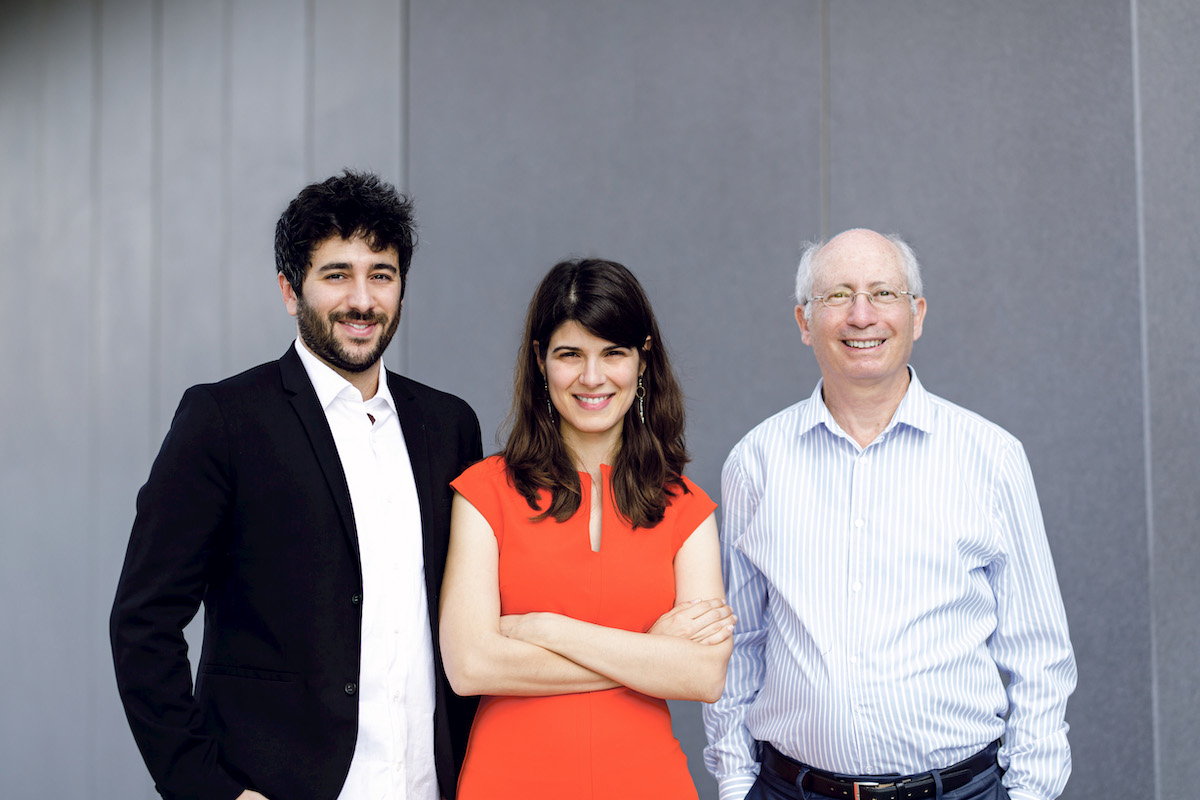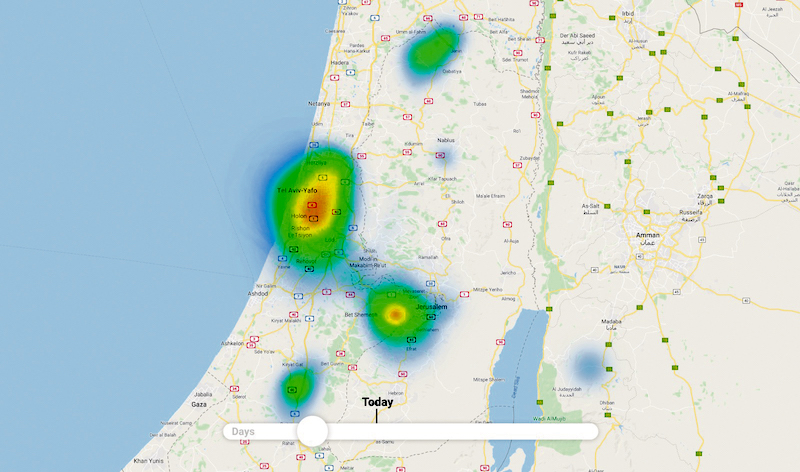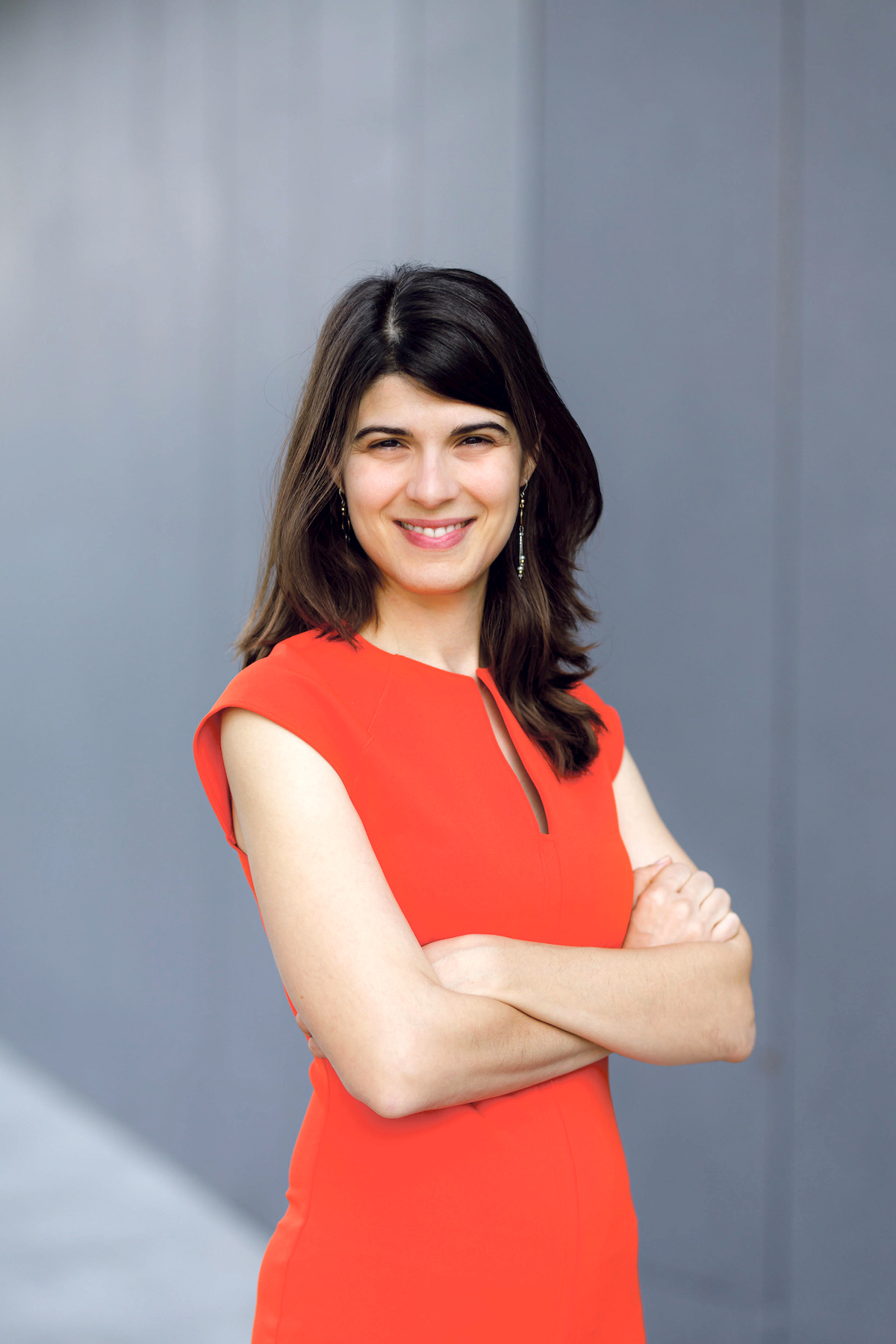Harnessing tech to improve health
In the second instalment of the Jewish News/UK Israel Business series on the use of Israeli technology to combat Covid-19, Candice Krieger looks at how AI helps combat the crisis
The continuing catastrophic impact of Covid-19 is demanding herculean efforts. Health professionals and key workers are going above and beyond to help fight it. And superhuman ability is indeed what we need. Artificial intelligence (AI) is also stepping up to help tackle Covid-19 in a variety of ingenious ways. AI and machine learning will be critical in helping us to understand more about this novel disease and develop smart strategies to stem the spread.
AI is technology that enables a computer to think or act in a more ‘human’ way. It serves as a vital tool to assist humans in their decision making through the ability of machines to sift through vast amounts of data and spot patterns. It takes information from its surroundings and suggests next steps based on what it learns or senses. AI and robotics have been transforming healthcare, and companies are now leveraging the potential AI provides to help the existing health ecosystem in the fight.
Among the ways AI is being used to help amid the crisis include: to speed up the search for a vaccine, further understand the biology of the virus, identify infection hotspots, reduce pressure on health systems through remote assessment and monitoring tools, and to quickly and cost-effectively crunch large amounts of data for predictive analysis, giving governments the tools so they can make smart and safe decisions for their citizens – to list just a few.
Get The Jewish News Daily Edition by email and never miss our top stories Free Sign Up
The interaction between people and machines has never been more important. Combined, humans and AI can serve as a critical driver in reaching a solution to this pandemic. Two Israeli companies proving essential in combatting Covid-19 are SparkBeyond and Diagnostic Robotics.
WHAT IS AI? The term artificial intelligence, or AI, was first used in 1956. In the 1960s, scientists were teaching computers how to copy human decision-making. This developed into research around ‘machine learning’, in which robots were taught to learn for themselves and remember their mistakes instead of simply copying.
Hugo Bieber, chief executive of UK Israel Business, who has been championing such companies via the organisation’s UK Israel HealthTech Forum, says: “AI and machine learning are buzzwords that we often see used to make rather basic technology sound more sophisticated.
“When it comes to ‘real’ AI and machine learning, Israel stands out as one of a few technology ecosystems at the forefront, creating and using machines to solve some of the world’s most complicated problems.
“The companies we have chosen to highlight for the second Jewish News/UK Israel Business feature on Israeli technology helping in the response to Covid-19 are the product of decades of combined team experience.
“Now more than ever, UK Israel Business is connecting Israeli companies to UK clients and partners and, in the case of Diagnostic Robotics, it presented at the first online UK Israel HealthTech Forum last month. Within an hour of the forum ending, we introduced it to a very senior NHS attendee, who wanted to explore using its product to help the UK’s fight against Covid-19.
“SparkBeyond first met with a UK Israel Business delegation to Israel led by the vice chairman of Mastercard in 2018. The company serves global corporates and helps create impact in areas such as health and climate change and now, its team of data scientists are using their knowledge to help deal with Covid-19.”
SparkBeyond
About the company
SparkBeyond uses AI-powered problem-solving technology to empower organisations to solve real-world complex challenges. Its platform embeds machine learning into decision support systems, and is a crucial tool within the data science value chain. Its AI technology bypasses the human bias in problem-solving and generates millions of hypotheses per minute.
SparkBeyond’s technology is already proving essential in the business world. It has generated more than seven billion hypotheses and more than a $2 billion (£1.6 billion) in impact for companies with which it has worked, including McKinsey & Company, Microsoft, PepsiCo and Anheuser-Busch.
It is now turning its solutions towards Covid-19. It is advising major consumer goods firms as well as the governments of Argentina, Israel and Italy on navigating the outbreak – and detecting patterns of spreading disease.
How does it work?
Traditional machine learning relies almost entirely on testing hypotheses generated by a human data scientist. As to SparkBeyond’s algorithms, the machine programmatically writes its own hypotheses and, using information theory, tests them at ultra-high speed to find meaningful patterns and ‘signal’ in the data. So the platform can test millions of hypotheses in minutes independently of a human analyst – which would otherwise take a data scientist or analyst days, weeks and months.
Some of the benefits include posing questions that people might not think to ask, enabling faster and better business decision-making underpinned by better insights, radically improving the output of data science teams – the results are inherently explainable as insights are communicated in plain English – exhaustively and comprehensively searching big data for patterns, and it enables a much more collaborative connection between data scientists and business leaders.
Founded by:
Sagie Davidovich and Dr Ron Karidi in 2013.
Based in:
Offices in Netanya, New York, London, Singapore, Melbourne and San Francisco. All R&D is based in Israel.
Operational in:
The Americas, Europe, Asia-Pacific, Australia and the Middle East.
Rationale for the company:
Sparked by a moonshot experiment in 2013, Davidovich and Dr Karidi set out to build a machine that could help solve the world’s most complex and pressing challenges. SparkBeyond empowers organisations to shape their future with AI, rather than just predict it. And true to its mission to do good while doing well, SparkBeyond is proud to pioneer novel approaches to generating social impact on a planetary scale.
Helping fight the Covid-19 pandemic:
Deployed across four continents, SparkBeyond is offering the public sector its technology and expertise in its response to the Covid-19 outbreak in three key areas:
- Prediction of risk hotspots: Identifying which regions bear a higher risk of infection based on known cases.
- Deployment of resources: How to prioritise the deployment of sanitisation resources, pop-up testing and police presence.
- The ‘Return to Normal’: How to allow citizens out of lockdown and back to work, safely and responsibly, in an effort to help minimise the impact upon the economy.
The company is advising major consumer goods firms as well as the Argentinian, Israeli and Italian government on how to proceed through the outbreak.
In Italy, SparkBeyond identified that not only were gas stations, water fountains and railways key infection sites, but that the A1 highway running from Milan to Naples also became an artery of contagion as people drove from north to south.
For businesses that need to ship goods, understanding the relative risks of transportation routes remains critical. And the same goes for policymakers looking to open up some economic sectors or parts of their city and state.
In Argentina, SparkBeyond’s technology will assist the government in looking at how the country can allow citizens to return to work and minimise economic impact. The platform will use data from the Argentinian ministry of health, which aggregates travel, demographic and employment data for each citizen, then integrates hundreds of external data sources to create a wider picture of the situation.
Amir Haramaty, SparkBeyond’s chief commercial officer says:
“SparkBeyond is a purpose driven, mission-oriented company where we connect AI to impact, both business impact and social impact. We are focused on ‘doing well while doing good’, from empowering leading insurance companies to ‘insure the uninsurable’ to providing an accurate dynamic demand forecasting to the largest global retailers, to helping fight cancer, reduce modern-day slavery, reduce inmate violence in crowded jails and tackle the climate change demands in a creative and innovative way.
SparkBeyond’s theme is to ‘harness humanity’s collective intelligence to solve the world’s most complex challenges’, and the Covid-19 pandemic is a perfect example of where SparkBeyond is playing a major role; from generating dynamic risk heat maps in four continents, to guidance on how to roll back quarantine and safely rekindle the economy. [Governments use] SparkBeyond’s predictive AI insights to allow citizens out of lockdown and back to work, safely and responsibly, in an effort to help minimise the impact on the economy.”
Will the crisis signal a quantum leap towards automation and AI?
“Crises have an effect of accelerating trends, forming a ‘new normal’. During the 1918 Spanish flu, for example, the New York Telephone Company (which became Verizon of New York) advertised a home phone bringing ‘cheer and encouragement to those in quarantine’. The decade following the 1918 pandemic saw the automobile, telephone, television and aviation industries take flight. The US GDP grew by 40 percent (Dow by 5x) during the “roaring Twenties”.
“What was the private sector’s adoption of the telephone 100 years ago is today’s public sector adoption of “digital transformation”. Once again, [it is] another reaffirmation that data and AI will be a central theme for the next century to come (in all facets of the economy).
“Covid-19 has shaken fundamentals, reducing clarity and visibility into the commercial and public landscapes, and devaluing once-reliable data, knowledge and expertise.
Market dynamics have changed beyond our intuitive understanding, and the pace of change is not expected to slow down any time soon. All of these factors lead to an acute dependence on deeper, faster and more exhaustive data analytics, the likes of which can only be achieved with AI and machine learning. AI seems to be the way we rebuild the systems by which we understand reality and predict its unfolding.”
Amir Haramaty
Post the pandemic, will AI replace humans in time or augment the human workforce?
“AI has yet to be labelled as either friend or foe in popular opinion. It goes from destroying humans, to replacing humans, all the way to elevating humans to new heights. We see it as our duty to promote the concept of ‘AI for good’. We’ve designed SparkBeyond to be an insightful and transparent partner to mankind in meeting its biggest challenges. Our technology amplifies human capacity to ask and answer questions, enhancing our collective ability to discover signal over noise and turn data into insight, insight into action, and action into impact.”
Amir Haramaty
Diagnostic Robotics
About the Company:
Diagnostic Robotics provides AI triage and care navigation platforms for the healthcare system, servicing patients, providers and insurers.
The AI-driven personalised triage service guides the patients through their journey in the medical ecosystem, analysing their medical history and current medical case using AI and NLP (natural language processing) technologies. Additionally, Diagnostic Robotics arms the medical providers with decision support systems to improve care.
Since early March, Diagnostic Robotics has been turning its solutions to the Covid-19 crisis. It provides a triage and monitoring system empowering healthcare providers, payers and government agencies to respond digitally to the growing pressures of the pandemic.
How does it work?
The platform reduces health system overload by helping individuals determine the right course of action while minimising direct contact with medical teams.
The system provides powerful predictive analytics models: differential diagnosis, triage score, and recommends any necessary diagnostic tests. It directs the patient to the most relevant medical setting (supported by the doctor) be it the emergency department (ED), urgent care clinic or remote consultation, and minimises unnecessary ED visits and consultations, while accelerating treatment time for the patient and increasing satisfaction.
Founded by:
Diagnostic Robotics was founded by Yonatan Amir, Dr Kira Radinsky and professor Moshe Shoham in 2017.
Based in:
Tel Aviv, with an office in New York City. All R&D is done in Israel.
Operational in:
Israel, US, India and, soon, more countries.
Helping fight the Covid-19 pandemic:
During Covid-19, Diagnostic Robotics has enabled the clinical triage of millions of people. The company’s technology has helped inform and power Israel’s response to the crisis – the government has made decisions based on its data.
The system has been able to identify potential infected patients and build care management flows for them, while providing the Ministry of Health with predictions about emerging outbreaks. This assisted Israel to effectively manage outbreaks in different cities and help its controlled exit strategy to relieve the economy.
Since early March, Diagnostic Robotics has been putting together a digital platform that is a one-stop shop for managing the Covid-19. It adapted the Covid protocol based on CDC (Centers for Disease Control and Prevention) guidance and data received from Italy and South Korea. The platform was integrated by Israel’s Ministry of Health, all the country’s health maintenance organisation (HMO) and emergency services (Magen David Adom).
Diagnostic Robotics’ platform for pandemic response is an extension of its digital triage solutions and is being implemented across the world. In April, the company launched a partnership with the State of Rhode Island, where its technology is powering the state’s self symptom checker.
Dr Kira Radinsky, chairwoman and chief technology officer at Diagnostic Robotics says:
“AI has been integral in our work during the pandemic. When cities are placed in lockdown, Diagnostic Robotics has been using machine learning models to understand how many people will get sick in the next few days or in the coming week in each city. It can predict which countries should go into lockdown by examining the Ministry of Health’s existing data from the past few weeks, along with data from the Central Bureau of Statistics among other stats such as population density), and public information on the general whereabouts of the population.
“The model also takes into account data from neighbouring cities and, together with all the additional information that has been accumulated by the system, was able to predict an uptick in new cases in Ashkelon, Tiberias, and Migdal HaEmek. The Ministry of Health and the police subsequently ordered a full lockdown of those cities.
“Diagnostic Robotics is also building models that will predict which cities should be taken out of lockdown in order to gradually start going back to normal (particularly economically). The company is also able to predict which segments of the population are developing Covid-19 symptoms.”
Will AI now, more than ever, change the healthcare system and other sectors going forward?
“Even before the Covid crisis began, the healthcare system was significantly constrained, having to treat an ageing population with limited resources.
This has manifested itself with an increasing number of patients per doctor in primary care reaching thousands, and long ED waiting times.
The evolving situation is not sustainable, neither from how many professionals are needed nor financially. The current pandemic confirmed that healthcare systems worldwide have limited capacity to deal with the potential threat of millions of sick people.
“We all agree that extreme change is needed. Automation and predictability are the only solutions for the scale of problem. AI-powered predictive healthcare that is now forming, helps to reduce wait times, improve staff workflows and reduce growing administrative burden.
“Diagnostic Robotics has been enabling such flows through most of the HMOs in Israel providing clinical triage and care navigation solutions. This helped reduce clinician shortages and burnout, while enabling the healthcare system to be financially sustainable, with higher patient satisfaction.”
Dr Kira Radinsky
Will the crisis signal a quantum leap towards automation and AI?
“Processes that were supposed to take 10 years are happening in months. The crisis helped uncover how much of our system is fragile and not ready for a scale. I doubt the crisis will be a quantum leap, but will indeed help accelerate the automation of healthcare that so desperately needs to scale faster.”
Dr Kira Radinsky
Post the pandemic, will AI replace humans in time or augment the human workforce?
“Today a doctor spends less than a third of their time face-to-face with a patient less, while more than third of their time is spent on administrative tasks.
“This administrative burden is one of the causes of doctor burnout and what inhibits the healthcare system from scaling. I believe this part will be completely transformed by AI, making it available for the doctor to focus on what they do best – treat patients.
“Hand-in-hand, AI will also help augment the doctors’ decisions. For the past few years, Diagnostic Robotics has been deploying AI-driven solutions to enable preventive medicine transformations for the chronic population. According to estimates of the World Health Organisation, chronic diseases account for 75 percent of worldwide deaths.
“A primary care physician cannot anticipate and identify deterioration of each of the thousand patients they are responsible for. Therefore, Diagnostic Robotics leverage deep learning algorithms to anticipate when a person is at risk of developing a chronic disease, and suggest preventive measures before they get worse.”
Dr Kira Radinsky

Thank you for helping to make Jewish News the leading source of news and opinion for the UK Jewish community. Today we're asking for your invaluable help to continue putting our community first in everything we do.
For as little as £5 a month you can help sustain the vital work we do in celebrating and standing up for Jewish life in Britain.
Jewish News holds our community together and keeps us connected. Like a synagogue, it’s where people turn to feel part of something bigger. It also proudly shows the rest of Britain the vibrancy and rich culture of modern Jewish life.
You can make a quick and easy one-off or monthly contribution of £5, £10, £20 or any other sum you’re comfortable with.
100% of your donation will help us continue celebrating our community, in all its dynamic diversity...
Engaging
Being a community platform means so much more than producing a newspaper and website. One of our proudest roles is media partnering with our invaluable charities to amplify the outstanding work they do to help us all.
Celebrating
There’s no shortage of oys in the world but Jewish News takes every opportunity to celebrate the joys too, through projects like Night of Heroes, 40 Under 40 and other compelling countdowns that make the community kvell with pride.
Pioneering
In the first collaboration between media outlets from different faiths, Jewish News worked with British Muslim TV and Church Times to produce a list of young activists leading the way on interfaith understanding.
Campaigning
Royal Mail issued a stamp honouring Holocaust hero Sir Nicholas Winton after a Jewish News campaign attracted more than 100,000 backers. Jewish Newsalso produces special editions of the paper highlighting pressing issues including mental health and Holocaust remembrance.
Easy access
In an age when news is readily accessible, Jewish News provides high-quality content free online and offline, removing any financial barriers to connecting people.
Voice of our community to wider society
The Jewish News team regularly appears on TV, radio and on the pages of the national press to comment on stories about the Jewish community. Easy access to the paper on the streets of London also means Jewish News provides an invaluable window into the community for the country at large.
We hope you agree all this is worth preserving.
- Sagie Davidovich
- Dr Ron Karidi
- Features
- Down to business
- Business
- Candice Krieger
- artificial intelligence
- artificial intelligence (AI)
- SparkBeyond
- Diagnostic Robotics
- UK Israel Business
- SparkBeyond’s
- Milan
- Naples
- Amir Haramaty
- Verizon
- emergency department (ED)
- Yonatan Amir
- Dr Kira Radinsky
- Moshe Shoham
- Covid-19
- World Health Organisation
- CDC (Centers for Disease Control and Prevention)
- Israel’s Ministry of Health
- Italy
- South Korea
- magen david adom
- US
- India
- tel aviv
- NLP (natural language processing)
- Americas
- Europe
- Asia-Pacific
- Australia
- the Middle East
- etanya
- New York
- London
- Singapore
- Melbourne
- San Francisco
- Israel News
-
By Brigit Grant
-
By Laurent Vaughan - Senior Associate (Bishop & Sewell Solicitors)
-
By Laurent Vaughan - Senior Associate (Bishop & Sewell Solicitors)
-
By Laurent Vaughan - Senior Associate (Bishop & Sewell Solicitors)
-
By Laurent Vaughan - Senior Associate (Bishop & Sewell Solicitors)


